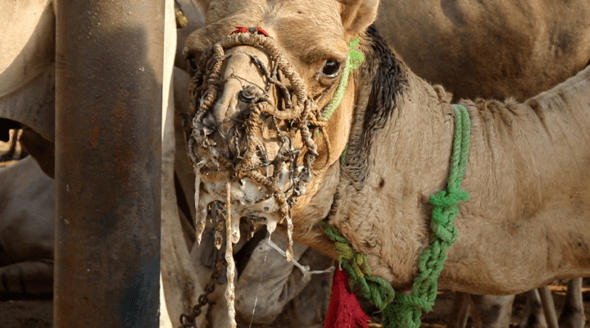World’S Largest Tea Company Ends All Tea Tests On Animals Following PETA Meeting
For Immediate Release:
31 January 2011
Contact:
Sandra Smiley [email protected]; + 44 (0)207 357 9229, ext 229
London – Only days before PETA was set to launch an international campaign against the world’s largest tea company, London-based Unilever, maker of PG tips and Lipton, the company has announced an immediate worldwide end to any tests on animals that aren’t required for tea and tea ingredients, for health claims or any other reason. Unilever’s decision follows appeals to the company by more than 40,000 members of PETA and its international affiliates as well as a meeting with executives from PETA affiliates in the UK, India, Germany and North America. During the meeting, Unilever was advised of an imminent global “PG tips/Lipton CruelTEA” campaign, and PETA’s representatives gave the company’s executives a glimpse at the planned campaign website, which contains hard facts about painful experiments on pigs, rabbits and rats as well as parodies of the tea brands’ labels. As a result, Unilever has posted its new policy on its website, stating, “Unilever is committing to no animal testing for our tea and tea-based beverages, with immediate effect”.
“PG tips’ decision means that the company will no longer harm live pigs or behead rabbits”, says PETA Founder Ingrid E Newkirk, who notes that among PETA’s canceled actions were a massive “tea dump” in Boston Harbor, a “Mad Hatter’s Tea Party” stunt in London and protests around the world. “We thank the company for listening to tea-drinkers’ concerns for animals and stopping such cruel tests.”
Unilever has funded experiments in which piglets were infected with E. coli and had their intestines cut apart while they were still alive, mice were killed by suffocation or neck-breaking, rabbits were decapitated and rats were brain-damaged. These tests were not required by law, and US and European regulators only approve food and beverage health claims on the basis of human studies. Modern in vitro and safe human-based testing methods are more effective than experiments on animals because of the vast physiological differences between humans and other animals.
PG tips and Lipton join many other major tea companies – including the world’s number one green-tea maker, ITO EN, as well as Tetley, Typhoo, Twinings and Tesco – that have confirmed that they do not test tea on animals. The only exception to the new policy would be on the rare occasions in which a foreign government, such as China, or a government agency that doesn’t recognise the non-animal methods in use in the EU and US were to require animal tests.
For more information, please visit PETA.org.uk.

